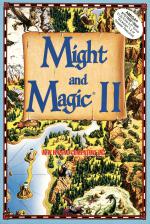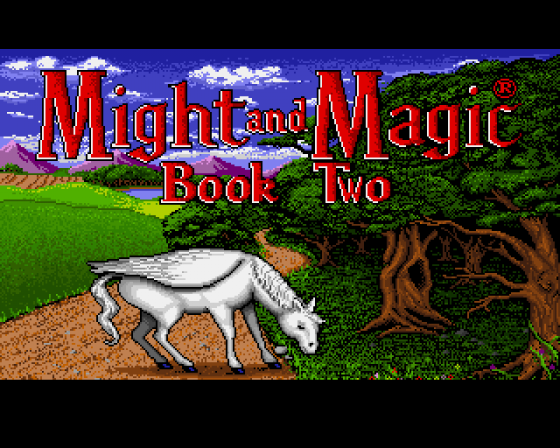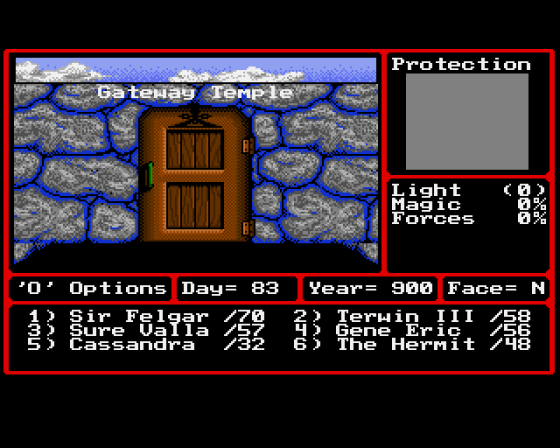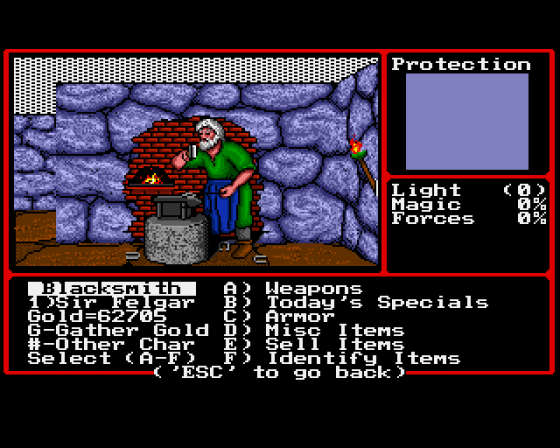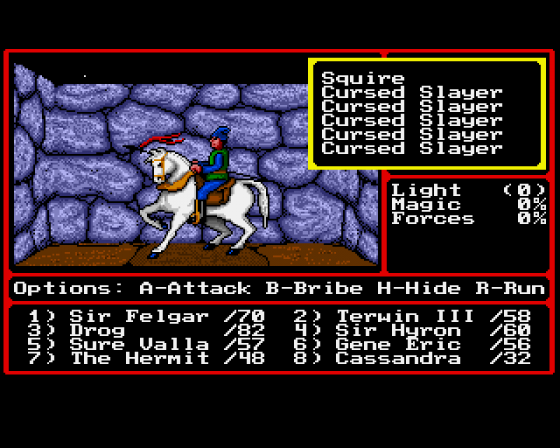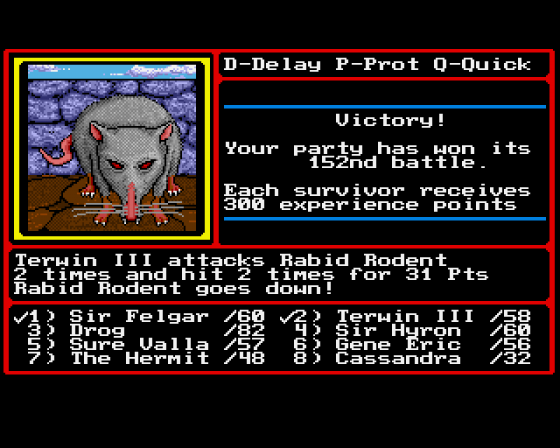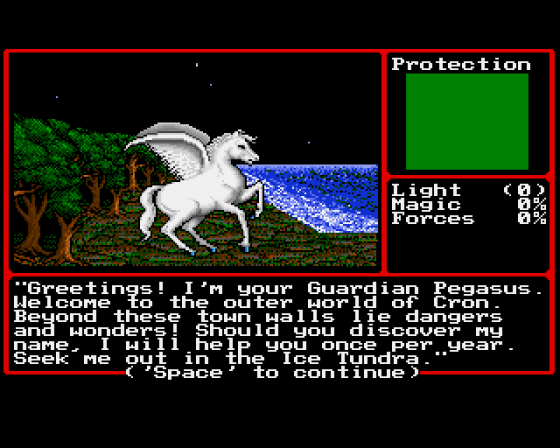
Zzap
 1st July 1990
1st July 1990
Categories: Review: Software
Publisher: New World Computing
Machine: Amiga 500
Published in Zzap #63
Might & Magic II
The kingdom of Cron was inadvertently forged during a ferocious battle between the four elements, Fire, Water Air and Earth. However, the fighting stopped when Man arrived (unusual) and displayed his contempt, even mastery, of the elements. Only in the extreme could the four elements harm humans and this fact, coupled with man's skill in matters magical, banished the elemental lords from direct interaction with Mankind.
One elemental lord was particularly miffed at being pushed aside and vowed revenge: he plotted, schemed and studied sorcery until he had power enough to summon a great dragon. The king of Cron realised how much of a threat the dragon was to his land and set out to vanquish it, the dragon wiped the floor with him! The king's battle plan was to protect himself from the dragon's fire with a shield of water but his spell backfired and he fried. Also, his attempt at creating a magic shield caused a flood which not only drowned the dragon but effected a change throughout the land, a change so vast it led to regression and the ultimate downfall of Cron's civilisation. Chaos reigns... and guess who gonna get wet?!
Might & Magic II is a role-pay game which puts you in charge of up to five teams of adventurers with a maximum of eight members in each. You can either choose members from those provided or spend many a happy hour creating your own using characteristics such as Statistics, Class, Race, Alignment, Sex, Status and Secondary Skills.
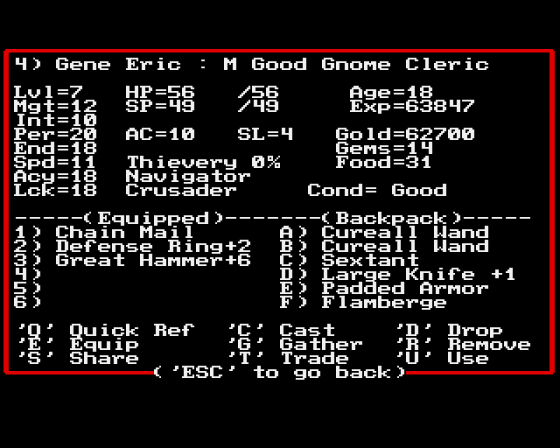
Four windows inform you of your current situation (although these change to one when viewing a character or in mapping mode). They display your view ahead and characters encountered, current options, date and time and your team or text messages.
Five towns nestle in the turmoil of Cron and Middlegate is the one where your adventures begin. In towns you find weapon shops, temples for curing the wounded and obtaining spells - spells for both clerics and sorcerers are many and varied - training arenas and many other buildings which may or may not conceal something of interest. There are also plenty of potential enemies wandering the streets.
Your band of merry muckers may be arranged in any order so that whichever of your party best suits a particular situation is ever to the fore. This is also useful if a party member has taken a lot of historic may be sent to the back of the party where it's relatively safe.
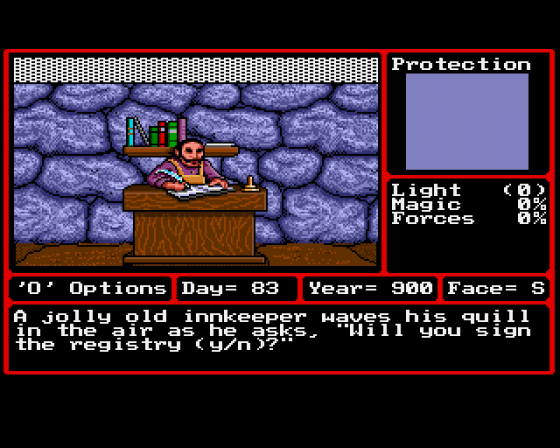
The combat system is quite good and it usually lets you run away - very useful when you stumble across a camp of 300 blood-crazed orcs. It's also fast so there's no time to make a cup of tea while enemies decide how to counter your moves.
Outside of towns a wilderness exists which is interesting to explore and features mountains, woods, cryptic messages, castles and again plenty of enemies to keep you on your toes. Graphics are animated and quite nicely drawn although you may get tired of seeing the same blacksmith in every town and the same barmaid (who drinks like a fish) in every tavern. There was no sound in the version I looked at.
Although there doesn't appear to be an ultimate goal in Might & Magic II you are given the odd quest to tackle to enable your party to build up experience, weaponry and gold reserves. One annoying feature is the restriction of only being game to save a game at inns. This idiosyncrasy can be very frustrating, especially if you've been on a binge in the wilderness and are about to enter a town after gaining lots of gold and experience points and you get wiped out by an attacker before you make it to the inn. I don't understand the logic behind this idea, all it did was make me use the off switch before I otherwise might have done.
Although Might & Magic II is polished to fairly high sheen and is interesting to delve in to, it's not a thinking player's game, but if you like a lot of mapping interspersed with the odd hack 'n slay bout then you might think this RPG magic.
Scores
Amiga 500 Version| Atmosphere | 73% |
| Puzzle Factor | 67% |
| Interaction | 71% |
| Lastability | 78% |
| Overall | 72% |

